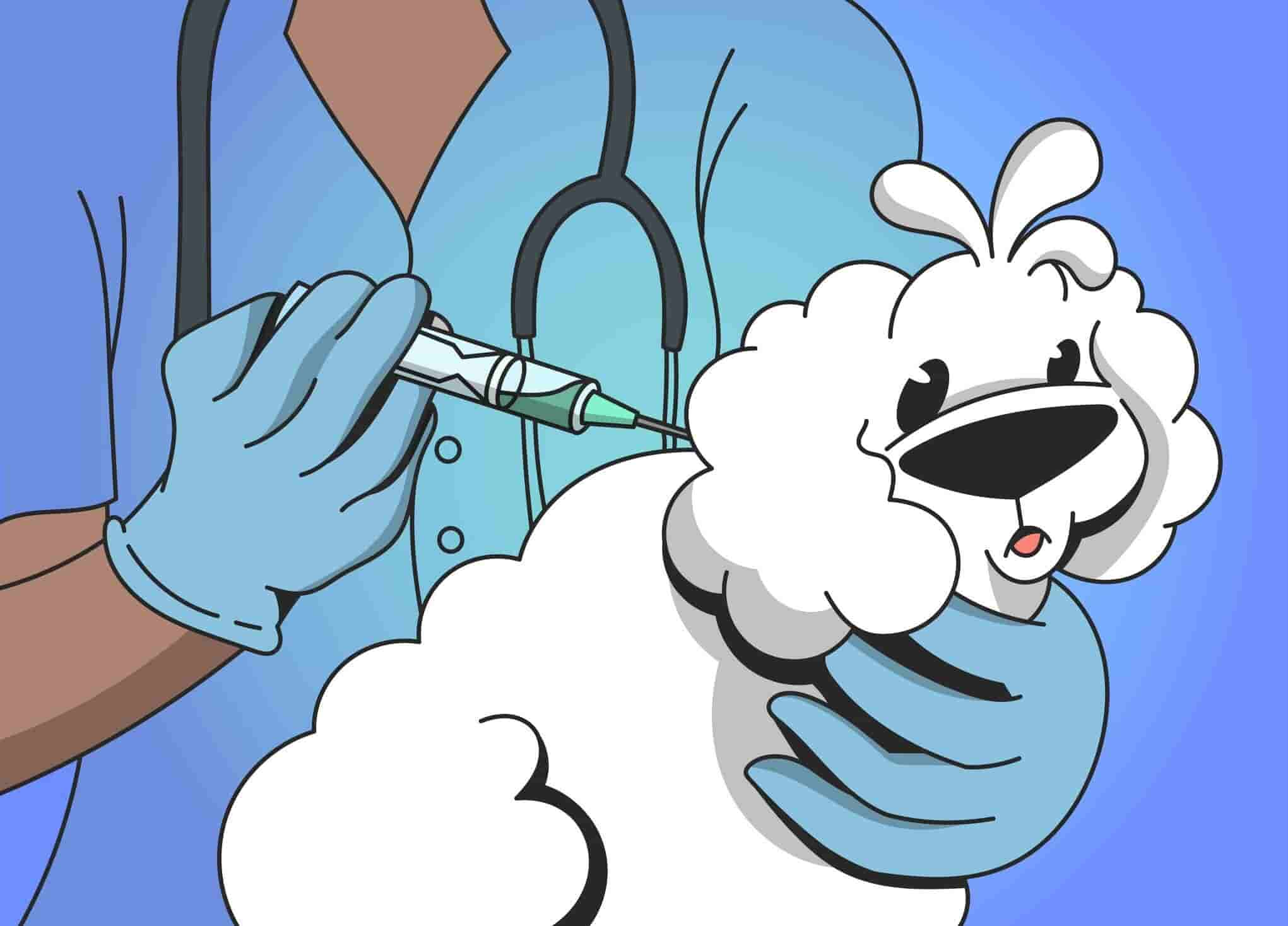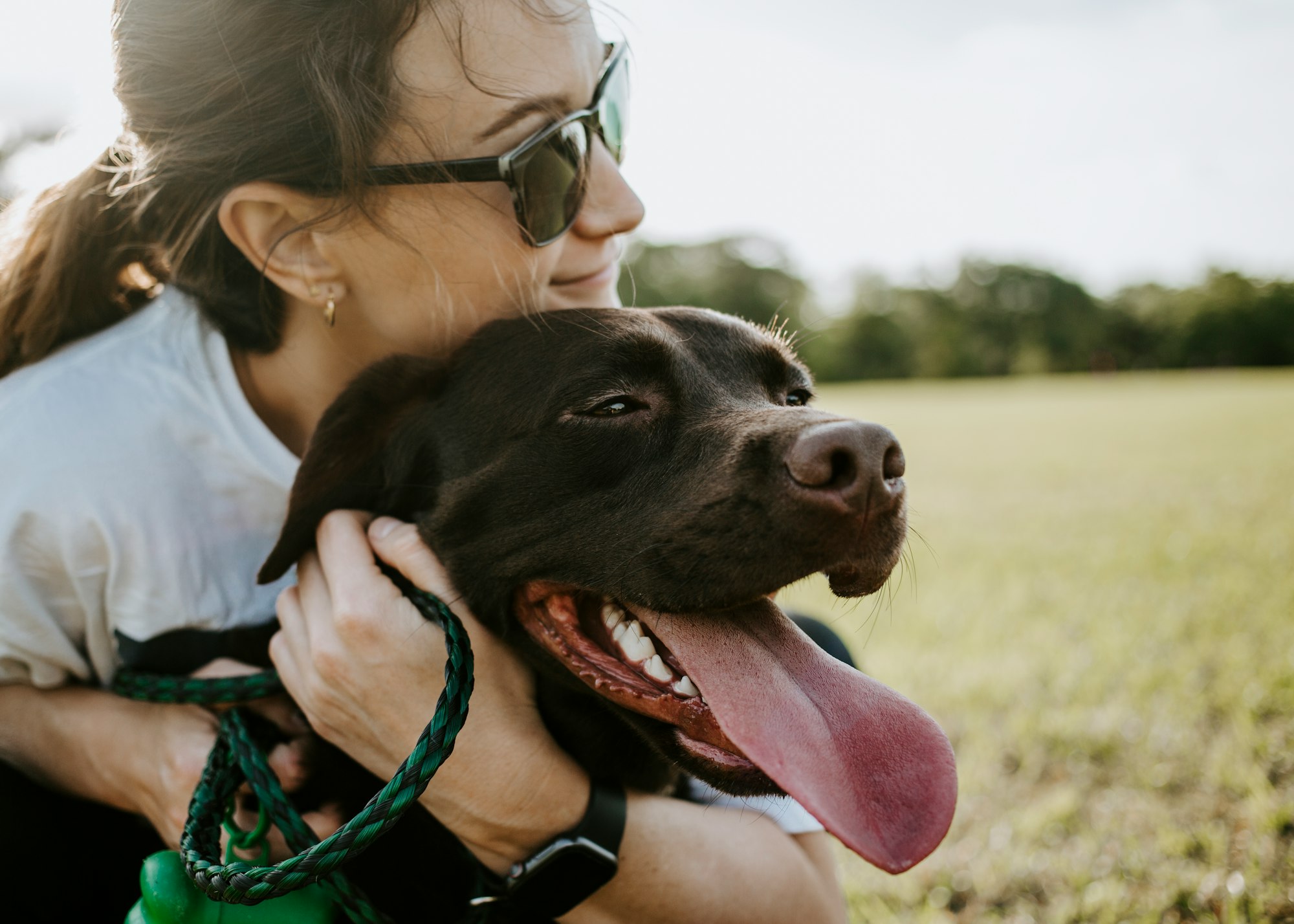Vaccinations are an important part of any pet’s healthcare routine. The majority of shots, of course, are given when dogs and cats are very young, but there’s a lot more to pet vaccines than meets the eye.
Did you know, for example, that some cats get vaccinated against chlamydia?
Your pet might not be a candidate for that vaccine, but it’s important to be informed.
Read more: How Much Does The Vet Cost?
Let's dive into this world of pet vaccinations and make it less scary that it already seems!
Core Vaccines vs. Non-Core Vaccines
Core vaccines are any pet vaccines that are recommended for all dogs and cats, regardless of health history. Some states actually have laws regarding which core vaccines pets must be given.
Non-core vaccines are optional and may be recommended by your vet depending on your dog or cat’s lifestyle, health history, or other risk factors for disease.
Core Vaccines for Dogs
There are currently four core vaccines for dogs. They are:
- Parvovirus (CPV), also known as "Parvo shot for dogs";
- Canine distemper virus (CDV);
- Canine adenovirus (CAV);
- Rabies.
According to American Veterinary Medical Association, almost all states require dogs to have rabies vaccines, but not all require the vaccine to be administered the same way. Also varying from state-to-state are requirements surrounding the specific frequency with which rabies vaccines must be administered.
Non core vaccines for dogs
There are a number of non-core vaccines available for dogs. They are given at the suggestion of a trained veterinarian and include:
- Bordetella bronchiseptica (Kennel Cough);
- Leptospira spp.;
- Giardia;
- Borrelia burgdorferi (Lyme disease);
- Canine parainfluenza virus (CPiV);
- Distemper/Measles combination.
Core Vaccines for Cats
Cats also have four core vaccines. They include:
- Feline herpesvirus 1 (FHV1);
- Feline calicivirus (FCV) - also known as "FVRCP vaccine for cats";
- Feline panleukopenia virus (FPV);
- Rabies - also known as "Rabies vaccine for cats".
State requirements for rabies vaccines also apply to cats (and even ferrets!) The feline panleukopenia virus is life-threatening and extremely contagious within the cat population.
Non Core Vaccines for Cats
Cats are subject to a number of important non-core vaccines, most of which are given based on a variety of lifestyle factors. Outdoor cats are far more likely to need non-core vaccines than indoor cats. Popular non-core feline vaccines include:
- Feline Leukemia Virus (FeLV);
- Feline Immunodeficiency Virus (FIV);
- Bordetella Bronchiseptica;
- Chlamydophila Felis;
- Feline Infectious Peritonitis (FIP);
- Giardia;
- Ringworm.
Wondering what vaccines indoor cats need? Be sure to consult with a vet and discuss which of the mentioned shots might be suitable. After all, a decision on cat vaccinations for your purrballs is best decided considering your friend's behavior.
For that matter, Petcube interactive pet cam can help you document your pet's behavior and day-to-day home activities. Petcube camera allows you to see how your furry friend behaves when you're away. How awesome is that? And that is pretty cool!
How Often Does My Pet Need Vaccines?
People are sometimes under the misconception that pet vaccines last a lifetime; that’s not the case. In fact, most pet vaccines last between one and three years, but their lifespan is really a function of each dog or cat’s unique immune system.
Your pet’s lifestyle factors will also influence how often he or she needs booster vaccines. A dog who frequently stays at the kennel, for example, will need his Bordetella shot more often than one who doesn’t.
For dogs, rabies vaccines come in one-year and three-year versions. Distemper, parvovirus, and adenovirus, as well as most non-core vaccines, require a booster dose at least once every three years. Some non-core dog vaccines such as the flu vaccine require yearly administration.
For cats, rabies vaccines are required every one or three years, depending on the vaccine used. Herpesvirus, calicivirus, and panleukopenia virus all require re-administration once every three years.
Remember that initially, each vaccine may require several doses spaced relatively close together. When your dog or cat is receiving their initial dosages of each vaccine, ask your vet how often they will need to be seen over the next few weeks or months to complete the vaccine course.
You can also get a pet vaccination planner (in print or electronic version) to have a better and more responsible track of the next due date for the vaccine shot.
Research proves that ensuring your pet receives all recommended vaccines in a timely manner is the best thing you can do to protect your dog or cat’s health. Vaccines save lives.
Be sure to talk to your vet if you still have any questions about vaccinations, schedules, and optional treatments.
Online Vet & Emergency Fund by Petcube
If you are constantly wondering if you are a good paw-parent and stay constantly worried about whether your pet receives all the adequate and needed care (especially health care!) - this paragraph is for you.
The puppy vaccine schedule (or kitten, or dog, or cat) is Pandora's box that could kill your vibe in the unconditional love for your pet. That is why it would be amazing to be able to consult with a vet about it throughout the process.
Therefore, it would be of great benefit if you can consult a vet wherever and whenever you are, especially if you have recently adopted a furry friend and feel worried about their well-being. Petcube’s Online Vet is here to help.
With Online Vet, you can chat with certified vets regarding your puppy shots timeline, from inquiring about what vaccines they need and how often to asking about the puppy after vaccination side effects or dog behavior change after vaccination to side effects of rabies vaccine in cats. The bonus part is that you don't need to stress your pet and yourself by going to the vet clinic just to chat with a doc!
Read more: What To Expect From An Online Vet Visit
The service is available 24/7, so you can have peace of mind regarding your pet's health and wellness anywhere you are.
The Online Vet service is not the only good news we’ve got. Petcube created a Pet Emergency Fund which is an ah-may-zing pet insurance alternative. If you are faced with an emergency need due to urgent side effects of a dog shot - this subscription is perfect for you.
Of course, it is not only about the shots! Any other emergency situation such as a blockage in airways, life-threatening wounds, severe cases of unstoppable vomiting, and diarrhea - can be eligible for coverage with Emergency Fund. Make sure to contact the online vet which is included in the membership to check the eligibility.
Was this article helpful?
Help us make our articles even better










